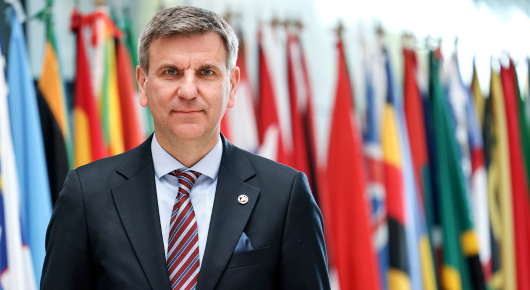
Regional Representative: Viorel Gutu
Viorel Gutu has gained over 30 years of experience in agricultural development, enterprise restructuring, structural reforms, and private business development through his involvement in the public and private sector, and implementation of international projects.
A national of the Republic of Moldova, Viorel Gutu was appointed to the post of FAO Assistant Director-General and Regional Representative for Europe and Central Asia in February 2024. Prior to that he served as FAO Subregional Coordinator for Central Asia and Representative for Türkiye and Uzbekistan.
He joined FAO in 2014 as the head of the FAO Tajikistan office, leading the Country Office in establishing productive relations with the national government and key donors.
Before joining FAO, Gutu was Deputy Minister of Agriculture and Food Industry in the Republic of Moldova. In this position, he was responsible for the coordination, monitoring and evaluation of strategic policy implementation in agriculture and rural development. He also served as an economic affairs officer with the United Nations Transitional Administration in East Timor, where he dealt with peacekeeping operations, poverty alleviation and the prevention of emergency situations. He holds a doctoral degree in economics.
@FAOADG_ECA

Nuclear technologies for global food security: FAO regions unite to drive innovation in agrifood systems
18/02/2026

FAO and Uzbekistan partner for more resilience, growth and equity in rural areas by 2030
22/12/2025

80 trees for 80 years – Urban forest gets support from FAO
16/12/2025
Between concrete and traffic, urban forests breathe life into our cities. They are more than just trees; they’re the foundation for greener, healthier and more vibrant cities. They offer an inclusive, accessible and highly impactful way to enhance community well-being, boost biodiversity and make our urban spaces more resilient to climate change. To mark the eightieth anniversary of its establishment, the Food and Agriculture Organization of the United Nations (FAO) has helped Budapest become a greener and healthier city by planting 80 trees in a protected urban forest area.
